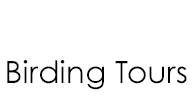July 12-22, 2025 with Willy Perez & Jairo Guzqui

The Enchanted Islands — that’s what people call the Galápagos, and for good reason. It’s a place full of wonder, wild beauty, and moments that stay with you long after you’ve left. For nature lovers — especially birders — it’s a dream come true. I’m so happy to say that our recent tour was, once again, a complete success.
As usual, we made the Nemo III our comfortable home for seven unforgettable nights, and added one more night in Puerto Ayora, on Santa Cruz Island. Over the course of the week, we visited many of the major islands — exploring everything from the dry lowlands to the lush, misty highlands — all in search of the unique and endemic wildlife that makes the Galápagos so magical.

Right from the start, we were treated to fantastic sightings. On our very first outing, we visited the nesting sites of both Magnificent and Great Frigatebirds. It was a perfect opportunity to observe them up close and learn the small differences between the two. We also came across Blue-footed Boobies right in the middle of the trail — such a classic Galápagos moment! And we had to watch our step, as Land Iguanas were incredibly well-camouflaged, hiding in plain sight.
One of the most memorable days for many of us was on Genovesa Island. The sky was alive with Wedge-rumped Storm-Petrels — thousands of them fluttering and diving into cracks and crevices, trying to escape the watchful eyes of Short-eared Owls hunting nearby. It felt like we were watching a scene from a nature documentary… but we were living it.

Isabela Island brought us face-to-face with two of the Galápagos’ most iconic species: the Flightless Cormorant, with its odd, stunted wings, and the playful Galápagos Penguin. To look for the elusive Galápagos Rail, we ventured into the highlands — riding the local chiva (also known as the “chicken truck”), which added a fun, local twist to the journey. After a short hike, we were rewarded with excellent views of this secretive little crake. We also had a lovely sighting of the Brujo Flycatcher — now recognized as a separate species from the more familiar Vermilion Flycatcher.
One of the absolute highlights was seeing all three species of boobies: Nazca Boobies nesting on the ground, colourful Red-footed Boobies in the trees, and the unforgettable dance of the Blue-footed Boobies. On Española Island, we were treated to the beautiful courtship display of the Waved Albatross, and even saw their chicks — such a special moment, especially at this time of year.

The finch ID challenge kept us all on our toes — but it was a lot of fun, and we managed to identify 14 species, plus several subspecies. Every day brought something new, something surprising. And it wasn’t just about the birds: the ocean crossings between islands were full of life, too. We had wonderful sightings of Bottlenose Dolphins, Manta Rays, Mobula Rays, and even the elusive Mola Mola. Snorkelers in the group were lucky enough to swim alongside Hammerhead Sharks, Mobula Rays, and so many colourful fish!
On our final day, we explored the highlands of Santa Cruz, where we saw Giant Tortoises in the wild — always a humbling experience. We also added a few more species to our list, including the Vegetarian Finch, Barn Owl, and Large Tree Finch. We even had time for a short walk through a lava tunnel, which added a bit of geological wonder to our adventure.

But beyond all the wildlife, what really made this trip special for me was the group. You all came here with such enthusiasm and open hearts, ready to experience the magic of the Galápagos. Some of you were thrilled by the Flamingos, others by the Penguins, Flightless Cormorants, or the Swallow-tailed Gulls. A few even told me how much they enjoyed the finches — especially the Smedium, which made more than a few appearances! And yes, someone pointed out the Toco Toucan... Don’t panic, people, no toucans in Galapagos yet! It was just a fantastic decoration in the dining room that Stalin our chef made — which I have to admit made me smile.
It was definitely a week full of fun, discovery, laughter, and shared wonder. Thank you all for joining me on this adventure. And a huge thank-you as well to our incredible Galápagos guide, Jairo, for his knowledge, patience, and dedication — and to the entire crew of the Nemo III for taking such great care of us.
I’ll be back soon — but until then, just keep birding.

Other Wildlife We Saw on the Tour:
Mammals:
Bottlenose Dolphin
Galápagos Sea Lion
Galápagos Fur Seal
Santa Fe Rice Rat
Reptiles & Amphibians:
Marine Iguana
Land Iguana
Santa Fe Land Iguana
Lava Lizards (Galápagos, Española, Floreana, San Cristóbal, Santa Fe, and Isabela)
Green Sea Turtle
Fish & Marine Life:
Mobula Ray
Manta Ray
Spotted Eagle Ray
Diamond Stingray
Marble Ray
Hammerhead Shark
White-tipped Reef Shark
Mola Mola
And many beautifully colourful fish
Invertebrates:
Sally Lightfoot Crab
Hermit Crab
Insects:
Blue and Monarch Butterflies
Painted Locust

You can see my complete trip report on eBird at this link: https://ebird.org/tripreport/402926
You can download a combined PDF of this page and the eBird report at this link: https://fieldguides.com/triplists/gal25bTRIPLIST.pdf
-- Abrazos desde Dorset, Willy
